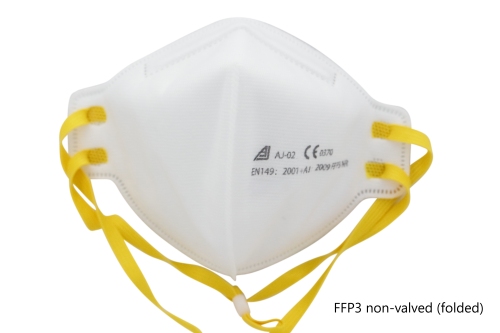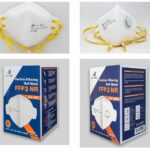The quality of face masks healthcare workers wear makes a huge difference to their risk of coronavirus infection, Cambridge University Hospitals NHS Foundation Trust research has found. Wearing a high grade mask known as an FFP3 can provide up to 100% protection. By contrast, there is a far greater chance of staff wearing standard issue surgical masks catching the virus.
For most of last year, the hospital followed national guidance which specifies that healthcare workers should wear surgical masks, except in a few limited situations. Though fluid resistant, these masks are relatively flimsy and loose-fitting and are not meant to screen out infectious aerosols – tiny virus particles that can linger in the air and are now widely accepted as a source of coronavirus infection. The study found that staff caring for Covid patients on “red” wards faced a risk that was up to 47 times higher than those on “green” or non-Covid wards.
Lead researcher Dr Mark Ferris, a specialist in occupational health at the hospital, said staff were getting Covid despite doing everything they were asked to in terms of infection control. So as the second wave of the pandemic started to hit last December, managers in Cambridge made a local decision to upgrade the protection on red wards. “The only thing left to try that could make a difference was FFP3 respirators, and they did,” Dr Ferris said. FFP3 masks have a close fit and are specifically designed to filter out aerosols.
In the weeks following this move, the rate of infections among healthcare workers on red wards dropped spectacularly, quickly falling to the level experienced by staff on green wards where there were no Covid patients. The study concludes that “cases attributed to ward-based exposure fell significantly, with FFP3 respirators providing 31-100% protection (and most likely 100%) against infection from patients with Covid-19”. Any remaining cases were likely to be caused by spread in the community, rather than in the hospital.
Source: Covid: Masks upgrade cuts infection risk, research finds – BBC News














